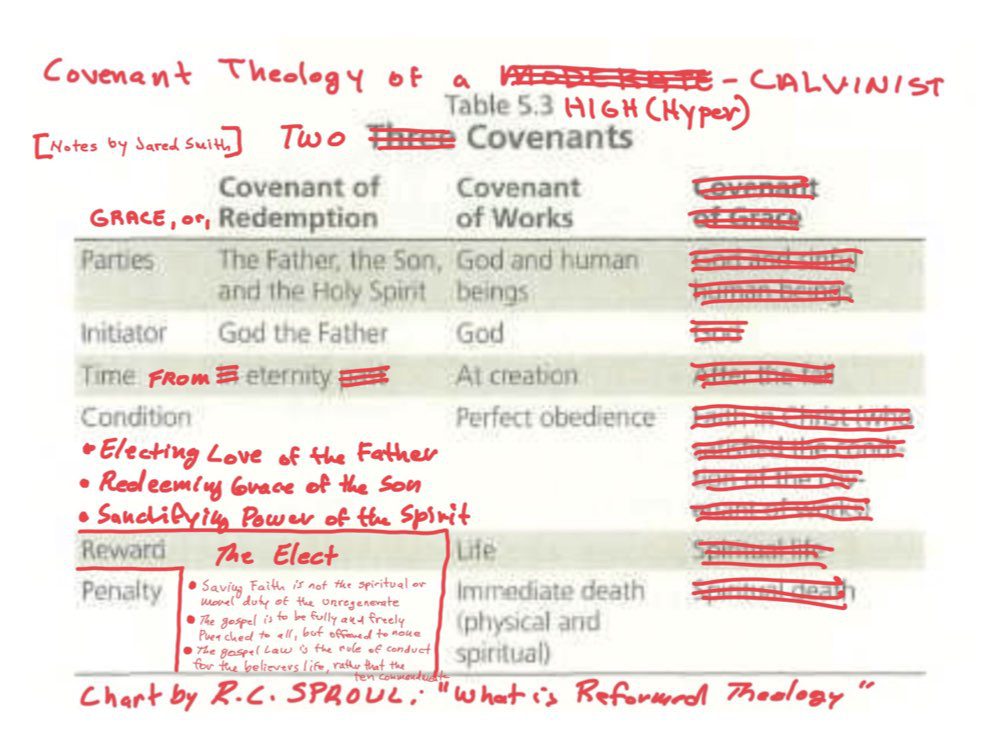
A Comparison Between The Covenantalism Of Moderate And High (Hyper) Calvinism


The covenantalism of Moderate-Calvinism is outlined in the major seventeenth century confessions such as the 1646 Westminster Confession and the 1689 Baptist Confession. However, by the turn of the eighteenth century, many churches rejected the notion of a ‘conditional’ covenant of grace. The majority of the Particular Baptists, represented by men such as Benjamin Keach and John Gill, believed the covenant of redemption is the covenant of grace (as outlined above). Three years after Keach endorsed the covenantalism of the 1689 Baptist Confession, he acknowledged his error. Churches belonging to other denominations, such as the Congregationalists, Independents and Anglicans, followed suit. High (Hyper) Calvinism, therefore, (1) is not confined to a small group of Particular Baptists, (2) nor is it defined by the magnification of divine sovereignty at the expense of human responsibility. The controversial issues on whether saving faith is the duty of the unregenerate, and whether the gospel should be offered rather than preached, and whether the gospel law as opposed to the moral law should be the rule of conduct for the believer’s life, revolve around the covenantalism of High (Hyper) Calvinism. Unless the reader understands the covenantalism of the High (Hyper) Calvinists, he/she will never rightly interpret or fully appreciate their writings and teachings. How many Moderate-Calvinists read men such as John Gill, believing they and he mean the same thing when referring to a covenant of grace?
Jared Smith served twenty years as pastor of a Strict and Particular Baptist church in Kensington (London, England). He now serves as an Evangelist in the Philippines, preaching the gospel, organizing churches and training gospel preachers.
Jared Smith on Eldership
Jared Smith on the Biblical Covenants
Jared Smith on the Gospel Law
Jared Smith on the Gospel Message
Jared Smith on Various Issues
Jared Smith, Covenant Baptist Church, Philippines
Jared Smith on Bible Doctrine
Jared Smith on Bible Reading
Jared Smith's Studies in Romans
Jared Smith's Hymn Studies
Jared Smith's Maternal Ancestry (Complete)
Jared Smith's Sermons




